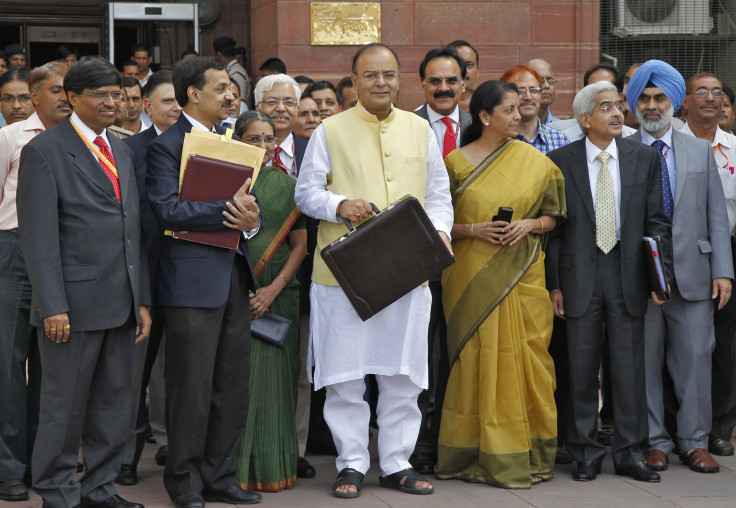Modi Government Provides Boost To Foreign Investments In First Federal Budget

The Narendra Modi-led BJP government presented what was widely perceived as an investor-friendly federal budget to the Indian parliament on Thursday.
Stating that the government was committed to a “stable taxation regime,” Finance Minister Arun Jaitley presented a budget that sought to live up to expectations set by the party, which won a record election victory in June with the help of a pro-business, pro-reform campaign platform. The finance minister stated that the government was “committed to reviving economic growth” and expressed hope that investors “would repose confidence on our stated position and participate in the Indian growth story with renewed vigour.”
The government aims to raise India's GDP growth to as much as 8 percent over the next few years from the current 4.9 percent.
Reacting to the budget, Arvind Saxena, president and managing director of General Motors, India, called the budget reform oriented. “Given the condition of the economy, the direction given in the budget is a positive one and the call for fiscal prudence is a welcome move,” he said, in a statement.
Here are some key points of the Indian Federal Budget 2014-15:
Divestment target revised to $9.7 billion: The budget raised the divestment target to $9.7 billion as the Modi government works to raise revenues and narrow the deficit by selling the state's stake to private players in various key sectors. This is an upward revision of the $8.6 billion target set by the previous Manmohan Singh-led UPA government. The current target includes an estimated $7.2 billion to be raised from selling stakes in government-owned public sector companies such as Oil and Natural Gas Corporation Ltd. and Steel Authority of India Ltd.
Foreign investment cap in defense, insurance and real estate sectors increased: The country will open up its defense and insurance sectors to foreign investment, according to the budget. The Foreign Direct Investment, or FDI, cap in the two sectors was increased to 49 percent from 26 percent, in a bid to bring in more foreign capital to these sectors. Until now, defense has attracted less than $5 million in foreign investments.
FDI norms in the real estate sector were also relaxed to encourage development of “smart cities.” Real Estate Investment Trusts, or REITs, which own and manage a portfolio of real estate properties by pooling in money from several investors, were accorded the status of a “pass-through entity,” which exempts them from paying corporate tax.
Liberal tax regime for Foreign Portfolio Investors: The budget recommended that income arising from transactions conducted by Foreign Portfolio Investors, or FPIs, be treated as capital gains, rather than business incomes that would have attracted higher taxes.
“FPIs have invested more than $ 130 billion in India. One of their concerns is uncertainty in taxation on account of characterisation of their income," Jaitley said in his budget speech.
No clarity on the contentious “retrospective tax” law: The BJP government failed to live up to its election promise of scrapping the controversial retrospective taxation law, which was introduced by the previous UPA government.
The tax was introduced in 2012 to get around a Supreme Court judgment, which ruled that Vodafone need not pay $1.6 billion in taxes for a 2007 purchase of the Indian telecom business of Hutchison. Since then, retrospective tax has been one of the biggest concerns among foreign investors interested in doing business in India.
The finance minister, in his speech, said that all future cases of retrospective taxation would be "scrutinized by a high-level committee."
$1.6 billion fund to be established to boost capital flow to start-ups: The finance minister also announced that a $1.6 billion fund would be set up to “attract private equity” to start-ups and other small and medium enterprises. This fund is expected to funnel more risk capital to entrepreneurs.
$83 million allocated to facilitate Public-Private-Partnership: The government also announced plans to set up a “3P institution” funded with $83 million to support Public-Private-Partnerships, or PPPs.
The finance minister said that the government was looking to develop gas pipelines, metro rails in major cities and airports primarily through a PPP model. He added that PPPs had delivered “some of the iconic infrastructure like airports, ports and highways,” and that these were seen as “models of development globally.”
© Copyright IBTimes 2024. All rights reserved.












